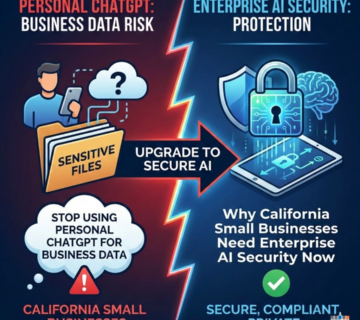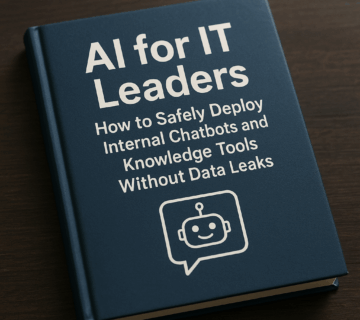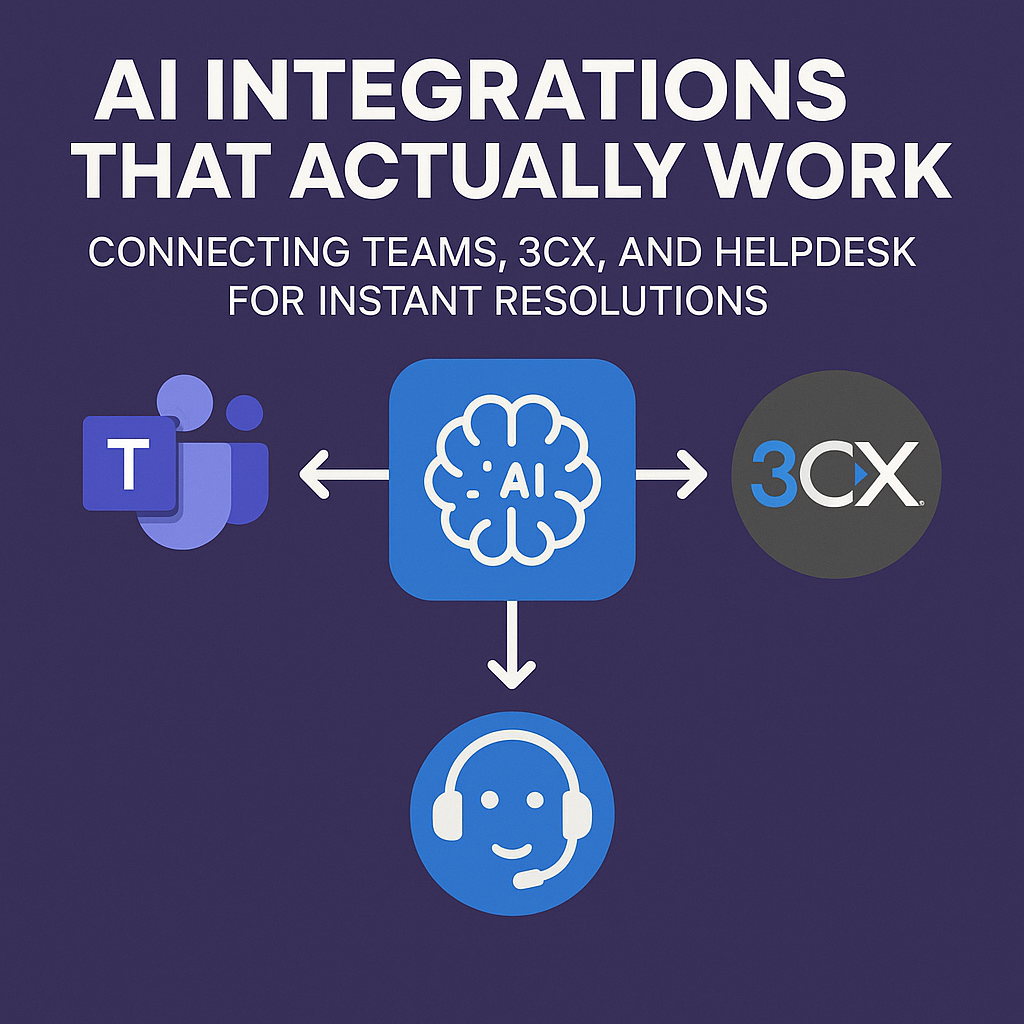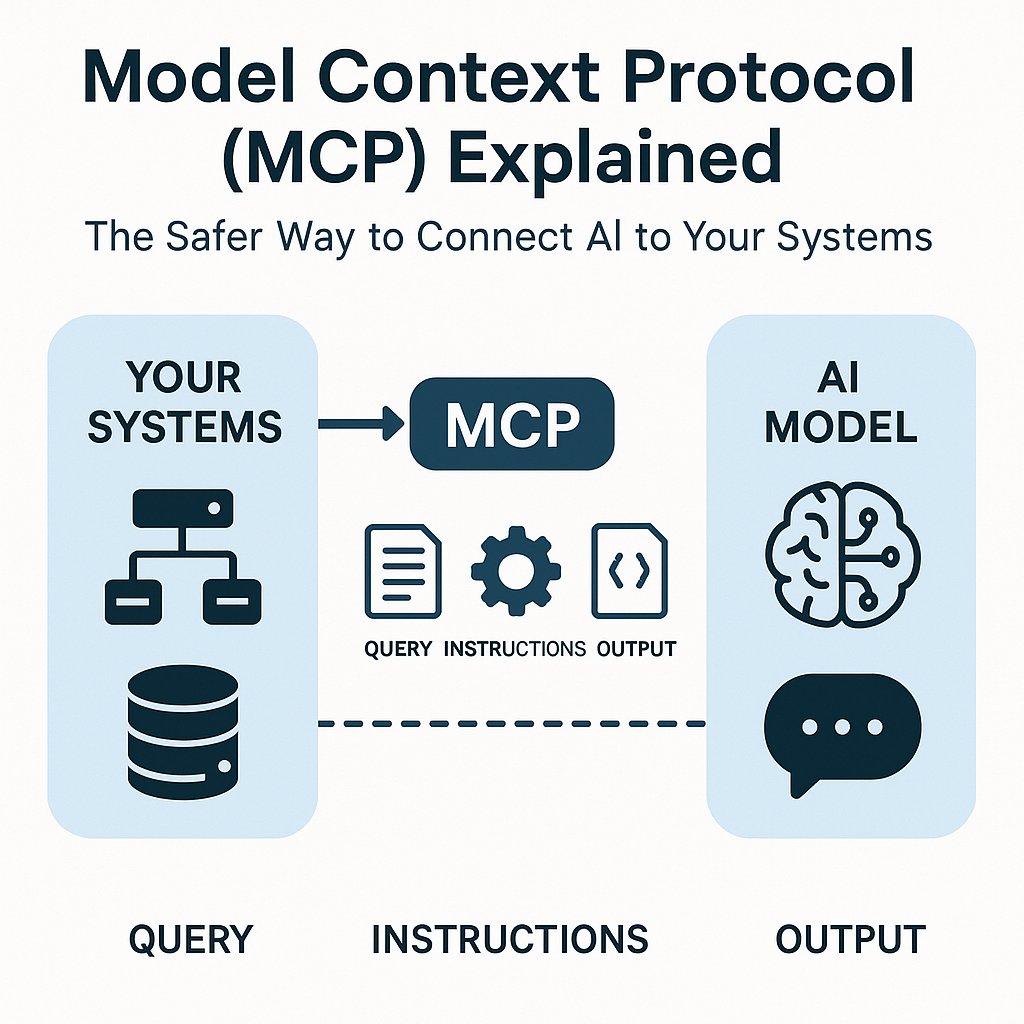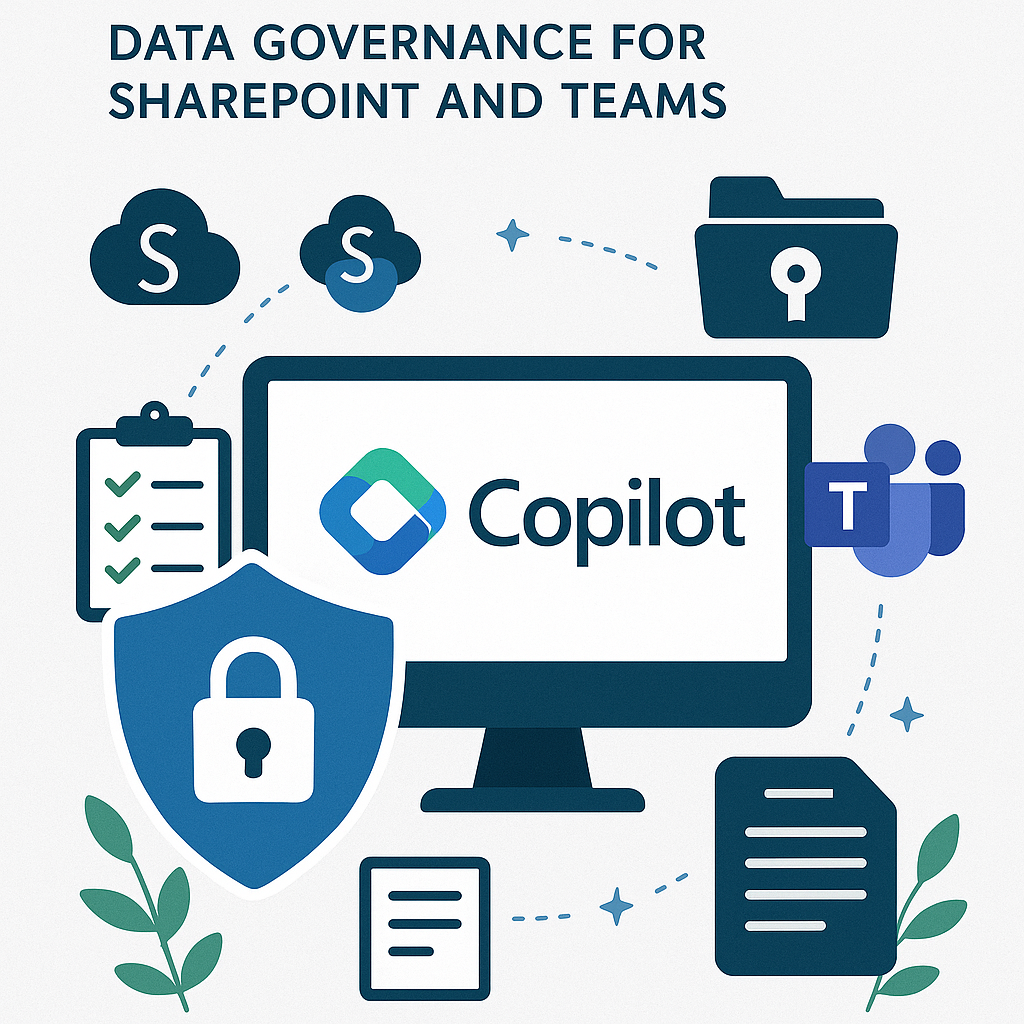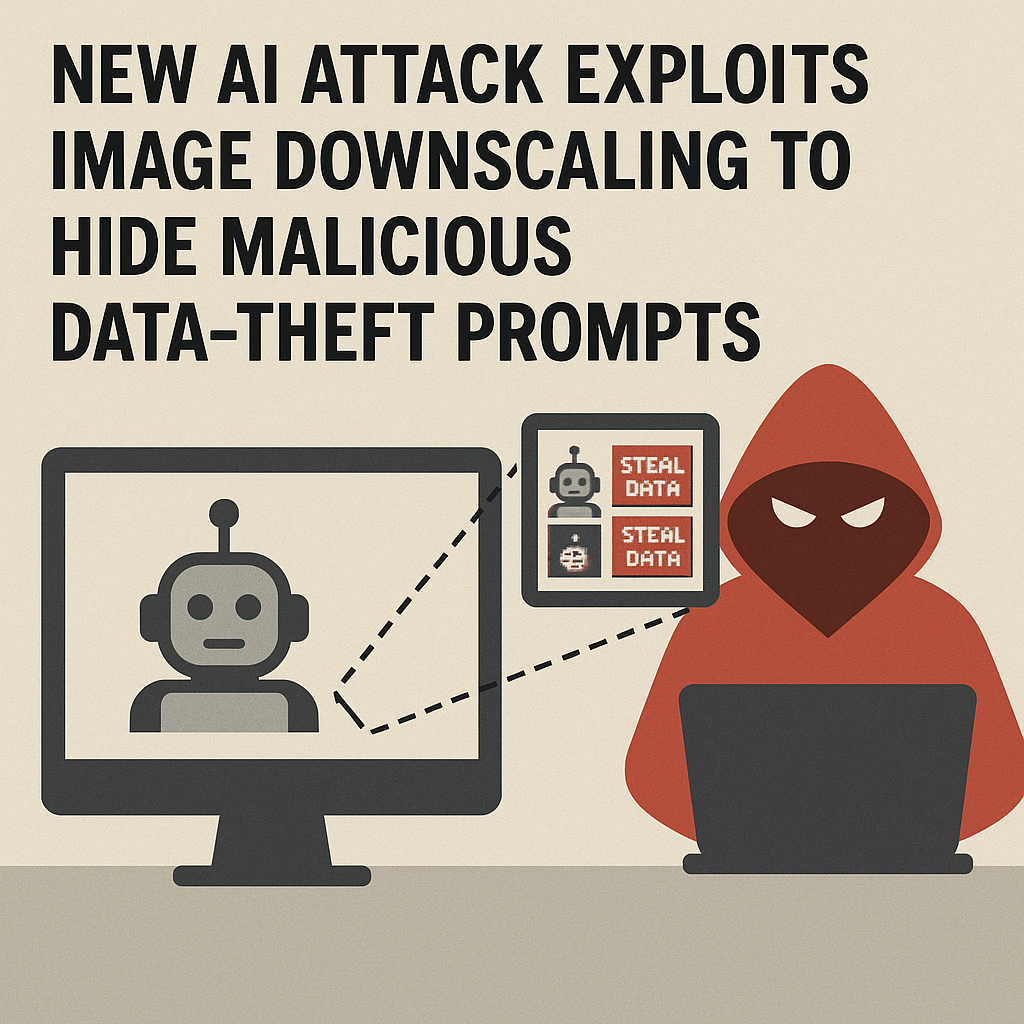MCP Servers 101: Safely Exposing Your Data and Tools to LLMs
🎙️ Dive Deeper with Our Podcast!
MCP Servers 101: Secure LLM Data Integration
👉 Listen to the Episode: https://technijian.com/podcast/mcp-servers-101-secure-llm-data-integration/
Introduction: The Future of AI Integration is Here
Large Language Models (LLMs) have revolutionized how we interact with technology, but their true potential remains locked without secure access to external data and tools. Enter MCP (Model Context Protocol) Servers – the game-changing solution that bridges the gap between AI capabilities and real-world applications while maintaining enterprise-grade security.
In this comprehensive guide, we’ll explore how MCP Servers enable organizations to safely expose their data and tools to LLMs, transforming static AI models into dynamic, context-aware assistants that can access live information and execute actions securely.
What Are MCP Servers and Why Do They Matter?
Understanding Model Context Protocol (MCP)
MCP Servers represent a standardized approach to connecting LLMs with external systems, databases, and tools. Unlike traditional API integrations that require custom development for each connection, MCP Servers provide a unified protocol that enables secure, controlled access to your organization’s resources.
Key Components of MCP Architecture:
- Protocol Layer: Standardized communication between LLMs and external systems
- Security Layer: Authentication, authorization, and data protection mechanisms
- Resource Layer: Databases, APIs, file systems, and enterprise tools
- Context Management: Intelligent data filtering and relevance scoring
The Problem MCP Servers Solve
Before MCP Servers, organizations faced a critical dilemma: either use LLMs with limited context (reducing effectiveness) or expose sensitive data through insecure channels (creating security risks). MCP Servers eliminate this trade-off by providing:
- Controlled Data Access: Granular permissions for data exposure
- Real-time Integration: Live connections to dynamic data sources
- Security-First Design: Enterprise-grade protection mechanisms
- Scalable Architecture: Support for multiple simultaneous connections
How MCP Servers Safely Expose Data to LLMs
Multi-Layered Security Architecture
Authentication and Authorization MCP Servers implement robust identity verification through:
- OAuth 2.0 and SAML integration
- Role-based access control (RBAC)
- Multi-factor authentication (MFA)
- Token-based session management
Data Filtering and Sanitization Before any data reaches the LLM, MCP Servers apply:
- Content filtering for sensitive information
- Data anonymization and pseudonymization
- Query validation and sanitization
- Response filtering and redaction
Audit and Compliance Every interaction is logged and monitored:
- Complete audit trails for compliance reporting
- Real-time monitoring of data access patterns
- Automated anomaly detection
- Integration with SIEM systems
Secure Communication Protocols
MCP Servers utilize encrypted communication channels:
- TLS 1.3 for data in transit
- End-to-end encryption for sensitive operations
- Certificate-based authentication
- Network isolation and VPN support
Benefits of Using MCP Servers for LLM Integration
Enhanced AI Capabilities
Real-Time Context: Access to live data ensures LLM responses reflect current information, eliminating outdated or irrelevant outputs.
Tool Integration: Enable LLMs to execute actions through integrated tools, from sending emails to updating databases, all within secure boundaries.
Domain Expertise: Connect LLMs to specialized knowledge bases and proprietary datasets, creating AI assistants with deep domain knowledge.
Improved Security Posture
Zero Trust Architecture: Every request is verified, authenticated, and authorized before execution.
Data Sovereignty: Maintain complete control over what data is accessed, when, and by whom.
Compliance Ready: Built-in features support GDPR, HIPAA, SOX, and other regulatory requirements.
Operational Efficiency
Reduced Development Time: Standardized protocols eliminate the need for custom integrations.
Centralized Management: Single point of control for all LLM-to-system connections.
Scalable Infrastructure: Handle growing demands without architectural redesign.
Key Features That Make MCP Servers the Preferred Solution
- Unified Protocol Standard
MCP Servers establish a common language between LLMs and external systems, reducing integration complexity by up to 80% compared to custom API solutions.
- Intelligent Context Management
Advanced algorithms determine relevance and priority of data, ensuring LLMs receive optimal context without information overload.
- Dynamic Permission Management
Real-time permission adjustments based on user roles, data sensitivity, and operational context.
- Enterprise-Grade Monitoring
Comprehensive dashboards provide visibility into:
- Data access patterns
- Performance metrics
- Security events
- Compliance status
- Vendor-Agnostic Design
Compatible with major LLM providers including OpenAI, Anthropic, Google, and open-source alternatives.
Implementation Best Practices for MCP Servers
Planning Phase
Data Classification: Categorize information by sensitivity level and access requirements.
Stakeholder Mapping: Identify all users, systems, and processes that will interact with the MCP Server.
Security Assessment: Conduct thorough risk analysis and define security requirements.
Deployment Strategy
Phased Rollout: Start with low-risk data sources and gradually expand access.
Testing Environment: Implement comprehensive testing before production deployment.
Change Management: Provide training and support for users adapting to new workflows.
Monitoring and Optimization
Performance Tuning: Regularly optimize query performance and data retrieval efficiency.
Security Updates: Maintain current security patches and protocol updates.
Usage Analytics: Analyze access patterns to improve user experience and identify optimization opportunities.
Real-World Use Cases and Success Stories
Healthcare Organizations
MCP Servers enable healthcare providers to give LLMs secure access to patient records, medical databases, and treatment protocols while maintaining HIPAA compliance. This results in:
- Faster diagnosis assistance
- Improved treatment recommendations
- Enhanced clinical documentation
- Reduced medical errors
Financial Services
Banks and financial institutions use MCP Servers to connect LLMs with transaction data, market information, and regulatory databases, achieving:
- Real-time fraud detection
- Personalized financial advice
- Automated compliance reporting
- Enhanced customer service
Manufacturing Companies
Manufacturing organizations leverage MCP Servers to integrate LLMs with production systems, quality databases, and supply chain tools, delivering:
- Predictive maintenance insights
- Quality control automation
- Supply chain optimization
- Production planning assistance
Comparison: MCP Servers vs. Alternative Solutions
Traditional API Integration
MCP Servers Advantages:
- Standardized protocol reduces development time
- Built-in security features eliminate custom security development
- Centralized management simplifies operations
- Better scalability for multiple LLM connections
Direct Database Access
MCP Servers Advantages:
- Enhanced security through controlled access layers
- Better audit capabilities
- Reduced risk of data exposure
- Simplified permission management
Middleware Solutions
MCP Servers Advantages:
- Purpose-built for LLM integration
- Lower latency through optimized protocols
- Better context management
- More comprehensive monitoring capabilities
Future Trends in MCP Server Technology
Emerging Capabilities
AI-Powered Security: Machine learning algorithms will enhance threat detection and response capabilities.
Advanced Context Intelligence: Improved algorithms for determining optimal context based on query intent and user behavior.
Multi-Modal Support: Enhanced capabilities for handling various data types including images, audio, and video.
Integration Expansion
Edge Computing: MCP Servers optimized for edge deployment to reduce latency.
Blockchain Integration: Immutable audit trails and decentralized permission management.
IoT Connectivity: Direct integration with Internet of Things devices and sensors.
Getting Started with MCP Servers
Assessment Phase
- Inventory Existing Systems: Catalog all data sources and tools that could benefit from LLM integration
- Define Use Cases: Identify specific scenarios where LLM integration would add value
- Security Requirements: Establish security policies and compliance requirements
- Success Metrics: Define measurable outcomes for implementation success
Selection Criteria
When choosing an MCP Server solution, consider:
- Security Features: Comprehensive protection mechanisms
- Scalability: Ability to handle growing demands
- Integration Capabilities: Support for your existing technology stack
- Vendor Support: Quality of documentation, training, and ongoing support
- Compliance: Alignment with industry regulations
Implementation Timeline
Phase 1 (Weeks 1-4): Planning and preparation Phase 2 (Weeks 5-8): Initial deployment and testing Phase 3 (Weeks 9-12): Production rollout and optimization Phase 4 (Ongoing): Monitoring, maintenance, and expansion
Frequently Asked Questions (FAQ)
Q: What makes MCP Servers more secure than direct API connections?
A: MCP Servers provide multiple security layers including authentication, authorization, data filtering, and audit logging. Unlike direct API connections, MCP Servers are specifically designed for LLM interactions and include built-in protections against common AI-related security risks such as prompt injection and data leakage.
Q: Can MCP Servers work with any LLM provider?
A: Yes, MCP Servers are designed with vendor-agnostic protocols that support major LLM providers including OpenAI, Anthropic, Google, and open-source alternatives. This flexibility prevents vendor lock-in and allows organizations to switch providers without redesigning their integration architecture.
Q: How do MCP Servers handle data privacy and compliance?
A: MCP Servers include comprehensive privacy protection features such as data anonymization, automatic redaction of sensitive information, granular access controls, and complete audit trails. These features help organizations comply with regulations like GDPR, HIPAA, and SOX.
Q: What is the typical implementation timeline for MCP Servers?
A: Implementation typically takes 8-12 weeks, depending on the complexity of existing systems and the number of data sources being integrated. The phased approach allows organizations to start seeing benefits within the first month while gradually expanding capabilities.
Q: How do MCP Servers affect system performance?
A: MCP Servers are optimized for performance with features like intelligent caching, query optimization, and parallel processing. Most organizations see improved overall system performance due to more efficient data access patterns and reduced load on individual systems.
Q: Can MCP Servers integrate with legacy systems?
A: Yes, MCP Servers are designed to work with both modern APIs and legacy systems. They include adapters and connectors for common legacy protocols and can be customized for unique integration requirements.
Q: What level of technical expertise is required to manage MCP Servers?
A: While initial setup may require technical expertise, MCP Servers are designed for ease of ongoing management. Most organizations find that existing IT staff can manage day-to-day operations after initial training, with vendor support available for complex configurations.
Q: How do MCP Servers handle high availability and disaster recovery?
A: Enterprise MCP Server solutions include built-in high availability features such as load balancing, failover capabilities, and data replication. Disaster recovery is supported through automated backups and geographic distribution of server instances.
Q: What are the licensing and cost considerations for MCP Servers?
A: MCP Server licensing varies by vendor and deployment model. Options typically include per-connection, per-user, or enterprise licensing. While there’s an initial investment, most organizations see positive ROI within 6-12 months through improved efficiency and reduced custom development costs.
Q: How do MCP Servers support multi-tenancy for organizations serving multiple clients?
A: MCP Servers include robust multi-tenancy features with complete data isolation, separate authentication realms, and individual security policies for each tenant. This makes them ideal for service providers and organizations with multiple business units.
How Technijian Can Help Transform Your LLM Integration Strategy
At Technijian, we recognize that implementing MCP Servers requires more than just technical expertise – it demands a deep understanding of your business objectives, security requirements, and operational constraints. Our comprehensive approach ensures successful MCP Server deployment that delivers measurable results.
Our MCP Server Expertise
Strategic Consulting: Our team begins every engagement with a thorough assessment of your current infrastructure, data assets, and integration goals. We help you identify high-impact use cases and develop a roadmap that aligns with your business priorities.
Security-First Implementation: With extensive experience in enterprise security, we ensure your MCP Server deployment meets the highest security standards while maintaining operational efficiency. Our security specialists work closely with your team to implement best practices and compliance requirements.
Custom Integration Development: While MCP Servers provide standardized protocols, every organization has unique requirements. Our development team creates custom connectors, adapters, and workflows that seamlessly integrate with your existing technology stack.
Comprehensive Service Offerings
Assessment and Planning Services
- Infrastructure analysis and readiness evaluation
- Security risk assessment and mitigation planning
- ROI analysis and business case development
- Implementation roadmap and timeline creation
Deployment and Integration Services
- MCP Server installation and configuration
- Custom connector development for legacy systems
- Data mapping and transformation services
- Testing and validation across all integration points
Training and Support Services
- Administrator training programs
- End-user adoption workshops
- 24/7 technical support and monitoring
- Ongoing optimization and performance tuning
Why Choose Technijian for Your MCP Server Implementation
Proven Track Record: We’ve successfully implemented MCP Server solutions across various industries, from healthcare and finance to manufacturing and technology. Our experience enables us to anticipate challenges and deliver solutions that work reliably in production environments.
Industry-Specific Expertise: Our team includes specialists with deep knowledge of industry-specific requirements, compliance standards, and best practices. Whether you’re in a highly regulated industry or dealing with unique technical constraints, we have the expertise to deliver appropriate solutions.
End-to-End Partnership: From initial consultation through ongoing support, Technijian provides comprehensive partnership throughout your MCP Server journey. We’re committed to your long-term success and continue to provide value long after initial implementation.
Innovation Focus: As technology evolves, we stay at the forefront of MCP Server developments, emerging protocols, and integration possibilities. Our clients benefit from continuous innovation and access to the latest capabilities.
Getting Started with Technijian
Ready to unlock the full potential of your data and tools through secure LLM integration? Contact Technijian today to schedule a consultation with our MCP Server specialists. We’ll work with you to understand your requirements, assess your current infrastructure, and develop a customized implementation plan that delivers results.
Contact Information:
- Schedule a free consultation to discuss your MCP Server requirements
- Request a detailed assessment of your current integration architecture
- Learn how other organizations in your industry have achieved success with MCP Servers
- Explore our comprehensive service offerings and support options
Get Started Today:
- Phone: (949) 379-8500
- Email: Sales@Technijian.com
- Website: https://technijian.com/
- Schedule a Consultation: https://technijian.com/schedule-an-appointment/
Transform your organization’s approach to AI integration with MCP Servers and Technijian’s expertise. The future of secure, intelligent data access is here – let us help you embrace it.
About Technijian
Technijian is a premier Managed IT Services provider in Irvine, specializing in delivering secure, scalable, and innovative AI and technology solutions across Orange County and Southern California. Founded in 2000 by Ravi Jain, what started as a one-man IT shop has evolved into a trusted technology partner with teams of engineers, AI specialists, and support staff both in the U.S. and internationally.
Headquartered in Irvine, we provide comprehensive AI implementation services, IT support, cybersecurity solutions, and cloud services throughout Orange County—from Aliso Viejo, Anaheim, Costa Mesa, and Fountain Valley to Newport Beach, Santa Ana, Tustin, and beyond. Our extensive experience with enterprise AI deployments, combined with our deep understanding of local business needs, makes us the ideal partner for organizations seeking to implement AI solutions that drive real business value.
We work closely with clients across diverse industries including healthcare, finance, law, retail, and professional services to design AI strategies that reduce operational costs, enhance productivity, and maintain the highest security standards. Our Irvine-based office remains our primary hub, delivering the personalized service and responsive support that businesses across Orange County have relied on for over two decades.
With expertise spanning AI implementation, managed IT services, cybersecurity, consulting, and cloud solutions, Technijian has become the go-to partner for small to medium businesses seeking reliable technology infrastructure and innovative AI capabilities. Whether you need AI budget planning in Irvine, machine learning implementation in Santa Ana, or enterprise AI consulting in Anaheim, we deliver technology solutions that align with your business goals and CFO requirements.
Partner with Technijian and experience the difference of a local IT company that combines global AI expertise with community-driven service. Our mission is to help businesses across Irvine, Orange County, and Southern California harness the power of artificial intelligence to stay secure, efficient, and competitive in today’s digital-first world.
